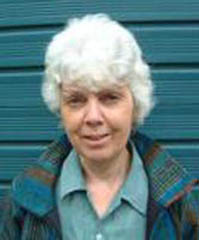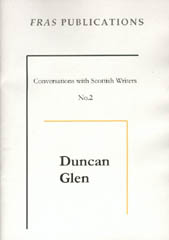Two Pamphlet Publications
Consisting of eighteen lyric poems, Smoke is a meditation on the poet’s Jewish heritage, and which in every phrase and every breath asserts the preciousness of life. Thus, these poems are a celebration of the unceasing miracle that is the survival of the Jewish people.
 It is appropriate that in this cycle there should be eighteen poems in all: in the Hebrew alphabet, each letter has a numerical value, and so every word has a numerical value too. The number 18 has a special significance, because it is the numerical value of the word for ‘life’ – ‘chai’, which consists of the letter ‘chet’, equivalent to 8, and ‘yod’, equivalent to 10. Though they are in no way ‘religious’ lyrics, in some very particular respects, in their utter simplicity and directness, these poems, as a series of haunting meditations on the poet’s heritage, can be described as being almost transcendental.
It is appropriate that in this cycle there should be eighteen poems in all: in the Hebrew alphabet, each letter has a numerical value, and so every word has a numerical value too. The number 18 has a special significance, because it is the numerical value of the word for ‘life’ – ‘chai’, which consists of the letter ‘chet’, equivalent to 8, and ‘yod’, equivalent to 10. Though they are in no way ‘religious’ lyrics, in some very particular respects, in their utter simplicity and directness, these poems, as a series of haunting meditations on the poet’s heritage, can be described as being almost transcendental.
The cycle opens with ‘Wire’, in the Lakeland Fells, where, ‘At Ruthwaite on the topmost wire/moleskins hang like tiny people/empty of all flesh and bone.’ There, in Wordsworth country, daffodils are never very far away, but the eerie emptiness of the landscape evokes ancestral memories, and the wire has stronger resonances than the flowers, ‘And not so very far/fingers closed on barbed wire,/and black against deluded winter white/the empty skins of men and women.’
‘Wire’, ‘Earth’, ‘Glass’, ‘Soup’, ‘Snow’, ‘Boots’, ‘Spectacles’, ‘Tracks’, ‘Birches’, ‘Shadows’, ‘Skin’, ‘Bread, ‘Numbers’, ‘Stars’, ‘Violin’, ‘Smoke’, ‘Sky’, ‘Psalm’ – each of the poems has a simple title that refers to familiar concepts. The language of each poem too is simplicity itself, and it is as if Daiches is isolating the essence of these concepts, recognising that here the simplest words only will suffice. There is no artifice, no baroque moments, only a purity of language.
The phenomena first referred to in ‘Stars’ are not those in the sky that announce the beginning and the end of the Sabbath, but the yellow cloth ones that Jews were required to ‘stitch on all their coats’. Yet, for a young child, innocently unaware of what is to follow, even as ‘the women and the girls/ stitch
… Rivka looks into the dark and sees/ all the family a constellation in the night sky.’ A description of the wonder and magic of childhood, and more poignantly of the terrible impending fate of the child’s family, the poem finds its awful force in the fastidiousness of the language and the simplicity of the imagery.
Some of the poems express the seemingly endless condition of Jewish exile, while others lament the fate of those who went from shtetl, via European drawing-rooms, to concentration camps. The final poem in the poem cycle, ‘Psalm’, is however a celebration of life itself:
‘On the far side of the water/ the hills are washed with light./ I see them often like this, ethereal/ when I walk on the shore and admire my small world.’
It is not a lamentation but a song of deliverance and quiet triumph.
‘So I go home and warm my hands/ and make coffee, the hills a reminder,/ as if my grandmother opened/ the piano and played a sonata by Mozart.
A sonata by Mozart or a psalm/ or candles at dusk or distant hills/ at dawn or whatever you choose to remind/ yourself that you are miraculously alive.’
‘Psalm’ is also a kind of blessing, or berakhah, though a secular one. It is a variation on the timeless sheheheyanu, which has been described as the ‘blessing of all blessings’, recited whenever ‘a wonder is born’: ‘Blessed are You, Lord our God, who has kept us in life, has sustained us, and has permitted us to reach this moment.’ ‘Psalm’ perfectly describes that moment. Jenni Daiches’ poem cycle Smoke is dedicated to the memory of her father, who died last year.
Because it does not receive any public subsidy, nor does it accept subscriptions – so that there is ‘no obligation to anyone, and no paperwork’ either, amongst literary magazines, Fras can be said to a very rare bird indeed. Having no rigid publishing schedule, the editors assert that ‘neither is prepared to lose time better spent on drinking and writing in the endless wastelands of administration.’ O si sic omnes.
 More seriously, its editors take an uncompromising position about the magazine’s purpose and focus. This is reflected in the current issue, Fras 5, most particularly in the extracts of transcripts of robust if not controversial interviews given last summer by poet and dramatist Donald Campbell and poet and publisher Duncan Glen. Campbell talks about recent cultural history, and remembers the pre-1979 Referendum Scottish literary scene which he describes as ‘diverse’ and ‘cohesive…not just a literary scene, but it merged in to a political scene’. After 1979, ‘there was a sense of everybody going off and doing their own thing.’ Though many of the writers ‘loathed each other’, Campbell recalls ‘that sense of communal identity that there was disappeared.’ Campbell also talks with Walter Perrie about his work as a poet and dramatist. Duncan Glen looks back over his early career in printing and his highly productive work in publishing. Founder of Akros, Glen sets the record straight about what was perceived as its cultural stance describes a golden age when it was possible to sell copies of his magazine ‘without trying too hard.’ In today’s hard times for small publishers, ‘you either have to be commercial, or simply go it alone and, more or less, give books away.’ Fras 5 also contains a version by George Stanley after Baudelaire, poems by Brendan McMahon and a short piece on criticism by G.F. Dutton.
More seriously, its editors take an uncompromising position about the magazine’s purpose and focus. This is reflected in the current issue, Fras 5, most particularly in the extracts of transcripts of robust if not controversial interviews given last summer by poet and dramatist Donald Campbell and poet and publisher Duncan Glen. Campbell talks about recent cultural history, and remembers the pre-1979 Referendum Scottish literary scene which he describes as ‘diverse’ and ‘cohesive…not just a literary scene, but it merged in to a political scene’. After 1979, ‘there was a sense of everybody going off and doing their own thing.’ Though many of the writers ‘loathed each other’, Campbell recalls ‘that sense of communal identity that there was disappeared.’ Campbell also talks with Walter Perrie about his work as a poet and dramatist. Duncan Glen looks back over his early career in printing and his highly productive work in publishing. Founder of Akros, Glen sets the record straight about what was perceived as its cultural stance describes a golden age when it was possible to sell copies of his magazine ‘without trying too hard.’ In today’s hard times for small publishers, ‘you either have to be commercial, or simply go it alone and, more or less, give books away.’ Fras 5 also contains a version by George Stanley after Baudelaire, poems by Brendan McMahon and a short piece on criticism by G.F. Dutton.
© Michael Lister
Smoke: A Poem Cycle by Jenni Daiches, Kettillonia. 1902944224. (Kettillonia, 24 South Street, Newtyle, Angus, PH12 8UQ). £3
Fras 5, Fras Publications. Atholl Browse Bookshop, by The Station, Blair Atholl, Perthshire, PH18 5SG. £4

Geoff Stevens on Tue, 31st May 2011 9:44 am
Both I and the Poetry Library are trying to contac tBrendan
for his permission to reproduce poems in back issues of Purple Patch on the Poetry Library website.
We do not have his current address. Can you help?
Geoff